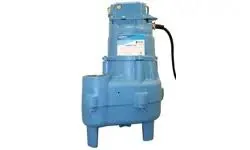Gujarati
- Afrikaans
- Albanian
- Amharic
- Arabic
- Armenian
- Azerbaijani
- Basque
- Belarusian
- Bengali
- Bosnian
- Bulgarian
- Catalan
- Cebuano
- Corsican
- Croatian
- Czech
- Danish
- Dutch
- English
- Esperanto
- Estonian
- Finnish
- French
- Frisian
- Galician
- Georgian
- German
- Greek
- Gujarati
- Haitian Creole
- hausa
- hawaiian
- Hebrew
- Hindi
- Miao
- Hungarian
- Icelandic
- igbo
- Indonesian
- irish
- Italian
- Japanese
- Javanese
- Kannada
- kazakh
- Khmer
- Rwandese
- Korean
- Kurdish
- Kyrgyz
- Lao
- Latin
- Latvian
- Lithuanian
- Luxembourgish
- Macedonian
- Malgashi
- Malay
- Malayalam
- Maltese
- Maori
- Marathi
- Mongolian
- Myanmar
- Nepali
- Norwegian
- Norwegian
- Occitan
- Pashto
- Persian
- Polish
- Portuguese
- Punjabi
- Romanian
- Russian
- Samoan
- Scottish Gaelic
- Serbian
- Sesotho
- Shona
- Sindhi
- Sinhala
- Slovak
- Slovenian
- Somali
- Spanish
- Sundanese
- Swahili
- Swedish
- Tagalog
- Tajik
- Tamil
- Tatar
- Telugu
- Thai
- Turkish
- Turkmen
- Ukrainian
- Urdu
- Uighur
- Uzbek
- Vietnamese
- Welsh
- Bantu
- Yiddish
- Yoruba
- Zulu
Telephone: +86 13120555503
Email: frank@cypump.com
નવેમ્બર . 09, 2024 08:12 Back to list
Efficient Solutions for Handling Agricultural Slurry Pumps in Modern Farming Practices
Understanding Agricultural Slurry Pumps Their Importance and Functionality
Agricultural slurry pumps play a pivotal role in modern farming and waste management, specifically in the handling of liquid waste and by-product materials. With the rise of intensive livestock farming and an increasing focus on sustainability, the need for efficient and reliable pumping systems has never been more critical. This article delves into what slurry pumps are, their applications, types, and why they are essential in agricultural practices.
What are Agricultural Slurry Pumps?
Slurry pumps are designed to transport highly viscous mixtures that contain solids, liquids, and sludges. In the agricultural sector, these pumps are primarily used for moving animal manure, bio-waste, and other organic materials that need to be processed or disposed of. Unlike standard water pumps, slurry pumps are specially engineered to handle the abrasive nature of these mixtures, which often contain solids ranging from small particles to large chunks.
Applications of Slurry Pumps
1. Manure Management One of the most common applications of slurry pumps is in the management of livestock manure. Efficiently transporting manure from barns to storage facilities or treatment systems is vital for maintaining hygiene and preventing environmental contamination.
2. Irrigation Systems Slurry pumps can assist in moving nutrient-rich liquids to field irrigation systems, enhancing soil fertility. Farmers can recycle waste products, contributing to a closed-loop agricultural system.
3. Wastewater Treatment Beyond direct agricultural applications, slurry pumps play a significant role in wastewater treatment facilities. They help in the transport of sludge and enable the efficient management of agricultural runoff, further protecting local water sources from pollution.
4. Digestate Handling In anaerobic digestion processes where organic materials are converted into biogas, slurry pumps are used to efficiently move the digestate—a nutrient-rich by-product—back to fields as fertilizer.
Types of Agricultural Slurry Pumps
agricultural slurry pumps

There are several types of slurry pumps designed to meet the diverse needs of farmers
1. Submersible Slurry Pumps These pumps are installed underwater and are ideal for pumping from pits or tanks where liquid waste accumulates. Because they are submerged, they are not sensitive to the physical conditions above ground and can handle variable levels of slurry.
2. Centrifugal Slurry Pumps Utilizing centrifugal force, these pumps are effective for transporting slurry over longer distances. They are commonly used in applications where the solid content is lower, as they can handle higher flow rates.
3. Progressive Cavity Pumps These pumps operate with a helical rotor and stator, making them excellent for thick slurries with a high solid content. Their design allows them to provide a continuous flow, regardless of the viscosity of the slurry.
4. Diaphragm Pumps These pumps use a diaphragm to create a vacuum that pulls the slurry into the pump chamber. They are highly versatile and can handle varying solid sizes, making them suitable for agricultural environments.
Importance of Agricultural Slurry Pumps
The significance of slurry pumps in agriculture cannot be overstated. They promote cleaner farming practices by preventing overflow and contamination of local waterways. Efficient handling of slurry reduces the odor and prevents the build-up of toxins, creating a healthier environment for livestock and local communities.
Moreover, utilizing slurry pumps enhances the sustainability of agricultural practices. By recycling waste materials and converting them into fertilizer or energy through biogas systems, farmers can reduce their environmental footprint and remain economically viable.
Conclusion
With the ongoing challenges of sustainability, productivity, and environmental responsibility, agricultural slurry pumps emerge as crucial tools in modern farming. Their ability to handle complex mixtures effectively contributes to efficient waste management, promotes soil health, and supports sustainable agricultural practices. Understanding and investing in these essential systems not only benefits farmers economically but also safeguards our planet for future generations. As agriculture continues to evolve, the role of innovative technologies like slurry pumps will undoubtedly be at the forefront of responsible farming solutions.
-
Wholesale Slurry Pump Impeller Supplier – High-Quality & Efficient Pump Parts for Enhanced Performance
NewsJul.07,2025
-
High-Efficiency Water Submersible Pumps Reliable Water Pump for Potable Water Supply
NewsJul.06,2025
-
Best Sewer Pump Reviews & Top Picks 2024 Reliable & Efficient Ejector Pumps
NewsJul.06,2025
-
China High Chrome Slurry Pump - Top-Quality, Efficient & Durable Pumps for Mining
NewsJul.06,2025
-
High-Performance Slurry Sand Pump Anti Abrasive & Durable Sand Slurry Pump Solutions
NewsJul.05,2025
-
High-Efficiency Slurry Pump Mechanical Seal – Reliable, Durable, Easy Installation
NewsJul.05,2025










